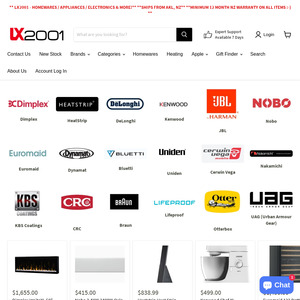Need a decent dehumidifier in our cold climate? Dessicant dehumidifiers actually work when it's cold. The condensor dehumidifer my real estate provided barley captured a litre a day and left me with water on the walls in my chilly bathroom. (And a wet toilet roll🤮)
This thing is a workhorse, consistently filling up daily. Bathroom is dry now. :)
Anyway, after shopping around for a while I found this deal, best price I could find online. Left it in my cart and got an abandoned cart offer of 5% off with code LX5. Turns out LX10 gives you 10% off. Who would have thought. :)


The Market: $303.05 delivered with code WINTER5 (free shipping with MarketClub).
https://themarket.com/nz/p/dimplex-9l-desiccant-dehumidifier…